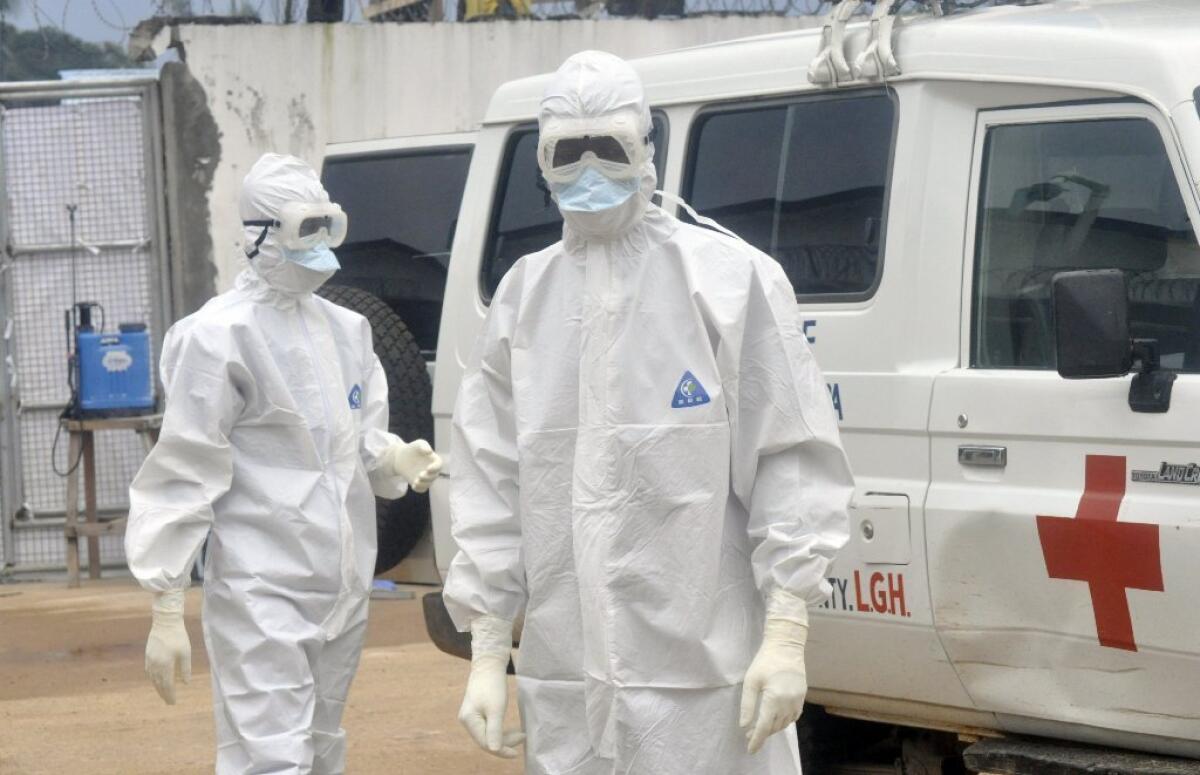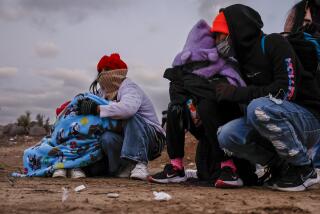Op-Ed: How to make it easier for health workers to volunteer in crises

- Share via
The United Nations estimates that 5,000 more international healthcare workers will be needed during the coming months in West Africa to fight the Ebola outbreak. But where they will come from is not entirely clear. As World Bank President Jim Yong Kim recently stated, “Right now, I’m very much worried about where we will find those healthcare workers.”
Aid agencies have openly expressed concern that mandatory quarantines for returning healthcare workers could affect the number of volunteers. Health professionals at academic institutions have complained that their universities sometimes make it difficult for them to volunteer. And some doctors with crisis experience who have tried to volunteer have given up because of the barriers they encounter. I have firsthand experience of this.
I am an emergency room doctor and aid worker who has worked in Liberia as well as in other developing countries. I have epidemic experience, having worked to control cholera outbreaks. And so it was only natural I would volunteer to go to West Africa to help treat Ebola.
For most of August, my schedule (and I) were a wreck, as I filed and refiled vacation requests, found colleagues to cover for me and booked and changed plane tickets. I empathized with the aid agencies I was working with — they were trying to manage extremely difficult logistics — but as time dragged on, I couldn’t wait any longer for an assignment and so went to Rwanda instead to teach ultrasound skills to doctors.
Would-be volunteer health professionals encounter different hurdles with different organizations. Some require at least eight weeks’ commitment — obviously tough to arrange for many health workers. Others keep doctors on hold as they wait for funding to come through or treatment units to be constructed.
There is also the issue of standards. Of course each organization wants to screen the doctors and nurses it sends, because not every would-be volunteer is suited to the challenge. As Margaret Aguirre, head of Global Initiatives at International Medical Corps, explains, the group requires that even experienced doctors who have worked with other aid agencies “go through the screening process for us, because we are still our own organization with our own principles.” Tim Shenk, press officer for Doctors Without Borders, adds that “due to our stringent requirements for staff working with Ebola, very few new applicants are placed in Ebola assignments.”
Often, it is easier and faster if a medical volunteer has worked for an organization previously, but even this is not always the case. Just last month, a doctor friend of mine tried to respond to Ebola with an aid agency she has worked with in the past, but it took so long to determine how best to deploy her that she had to return to her hospital duties before the logistics could be resolved.
The work these organizations are doing in West Africa is vital and impressive. But they are overwhelmed and can’t keep pace with the outbreak, and it’s unclear how they will be able to if they keep losing healthcare workers who are ready, willing and able to go.
Under the current system, most aid agencies maintain individual emergency rosters, but they are quickly exhausted in times like these. Healthcare workers may have signed up with an agency that doesn’t need them, while others are short of volunteers. A better solution would be to create a central repository of volunteers to be used in extreme emergencies like this Ebola response. Medical professionals could be vetted in advance to standards agreed on by a consortium of aid agencies, and they could be asked to regularly update their availability. Participating aid organizations could then draw from the list.
The U.S. Agency for International Development has embedded a medical volunteer application form on its website for its Center for International Disaster Information, which could serve as a potential starting point for screening. The database of those who have attended the Centers for Disease Control and Prevention’s safety training course could also be utilized. Aid agencies have access to the USAID database, but it is little more than a starting point because the medical professionals filling out the forms haven’t been vetted.
Aid agencies may also need to be more flexible. To get 5,000 more healthcare workers, they may need to take volunteers for only a few weeks at a time. Of course they don’t want medical tourists, and once a doctor or nurse has been trained, agencies like for them to stay as long as possible. But the work is physically exhausting and emotionally draining, and allowing a greater range of volunteer options might help fill the enormous need.
President Obama recently noted that it’s “critically important” that “all the talent, skill, compassion, professionalism, dedication and experience of our folks here can be deployed to help those countries deal with this outbreak at the source.” Let’s do this in an orchestrated, expedited fashion and harness all the potential volunteers out there — not only for this Ebola outbreak but also for future emergencies that will inevitably come.
Helen Ouyang is a physician and assistant professor of emergency medicine at Columbia University Medical Center. She is associate director of the International Emergency Medicine Fellowship and an affiliate faculty member of the Harvard Humanitarian Initiative.
Follow the Opinion section on Twitter @latimesopinion
More to Read
A cure for the common opinion
Get thought-provoking perspectives with our weekly newsletter.
You may occasionally receive promotional content from the Los Angeles Times.









